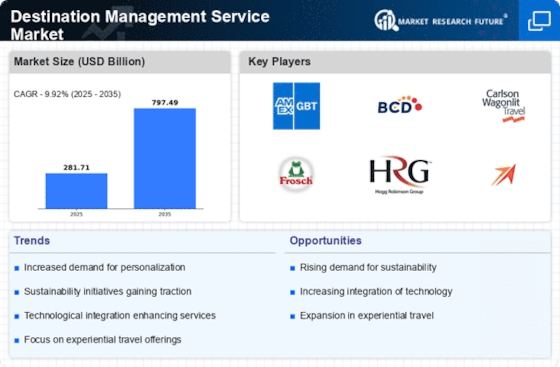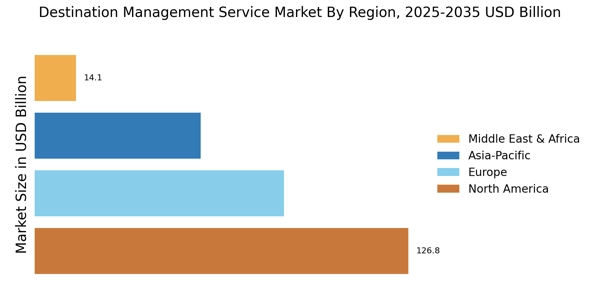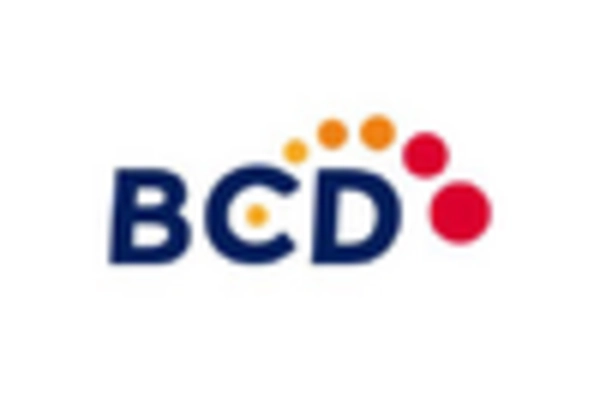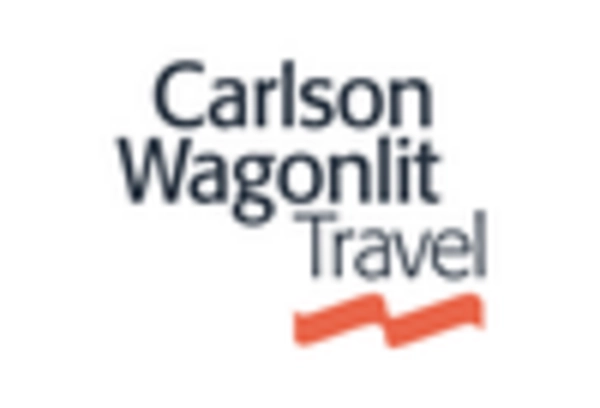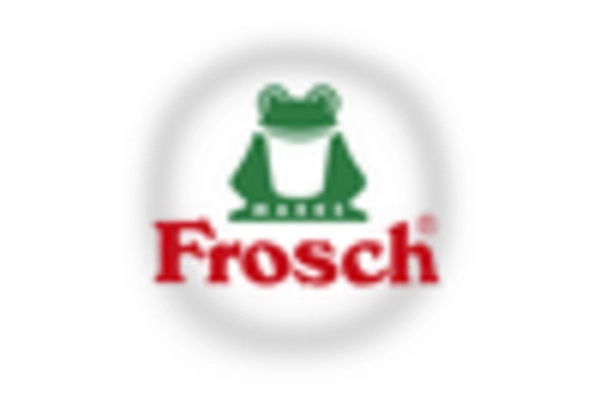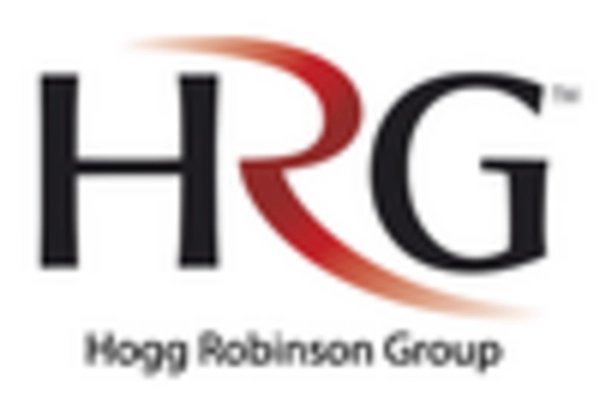Expansion of Emerging Travel Markets
The destination management service Market is experiencing growth due to the expansion of emerging travel markets. Regions such as Southeast Asia, Africa, and South America are witnessing a surge in tourism, driven by increasing disposable incomes and a growing middle class. Data indicates that these emerging markets are projected to contribute significantly to global tourism growth, with an estimated increase of 30% in international arrivals over the next five years. This trend presents opportunities for destination management companies to develop tailored services that cater to the unique needs of travelers from these regions. By capitalizing on this growth, companies can enhance their market presence and drive revenue in the Destination Management Service Market.
Collaboration with Local Stakeholders
Collaboration with local stakeholders is becoming increasingly vital in the Destination Management Service Market. Destination management companies are recognizing the importance of engaging with local communities, businesses, and government entities to create authentic and enriching travel experiences. This collaborative approach not only fosters community support but also enhances the overall visitor experience by providing access to local insights and resources. Recent studies suggest that destinations that actively involve local stakeholders see a 20% increase in visitor satisfaction. By building strong partnerships, destination management companies can leverage local knowledge and resources, thereby enriching their service offerings and contributing to the sustainable development of the Destination Management Service Market.
Rising Demand for Customized Experiences
The Destination Management Service Market is witnessing a notable increase in demand for personalized travel experiences. Travelers are increasingly seeking unique and tailored itineraries that cater to their specific preferences and interests. This trend is driven by a growing awareness of diverse cultural offerings and local experiences. According to recent data, approximately 70% of travelers express a desire for customized travel options, indicating a shift from traditional package tours to more individualized services. As a result, destination management companies are adapting their offerings to meet these evolving consumer expectations, thereby enhancing customer satisfaction and loyalty. This focus on customization is likely to continue shaping the Destination Management Service Market, as companies strive to differentiate themselves in a competitive landscape.
Technological Advancements in Service Delivery
Technological integration is transforming the Destination Management Service Market, enabling companies to enhance their service delivery and operational efficiency. The adoption of advanced technologies such as artificial intelligence, big data analytics, and mobile applications is facilitating real-time communication and personalized service offerings. For instance, data suggests that over 60% of destination management companies are investing in technology to streamline operations and improve customer engagement. This technological shift not only enhances the customer experience but also allows companies to gather valuable insights into traveler behavior and preferences. As technology continues to evolve, it is expected to play a pivotal role in shaping the future of the Destination Management Service Market, driving innovation and improving service quality.
Increased Focus on Sustainable Tourism Practices
Sustainability has emerged as a critical driver within the Destination Management Service Market, as travelers become more environmentally conscious. There is a growing expectation for destination management companies to adopt sustainable practices that minimize environmental impact and promote responsible tourism. Recent surveys indicate that nearly 65% of travelers prioritize eco-friendly options when planning their trips. This shift is prompting companies to implement sustainable initiatives, such as carbon offset programs and partnerships with local conservation efforts. By aligning their services with sustainability goals, destination management companies can attract a broader audience and enhance their brand reputation. The emphasis on sustainability is likely to continue influencing the Destination Management Service Market, as both consumers and businesses recognize the importance of preserving natural and cultural resources.


